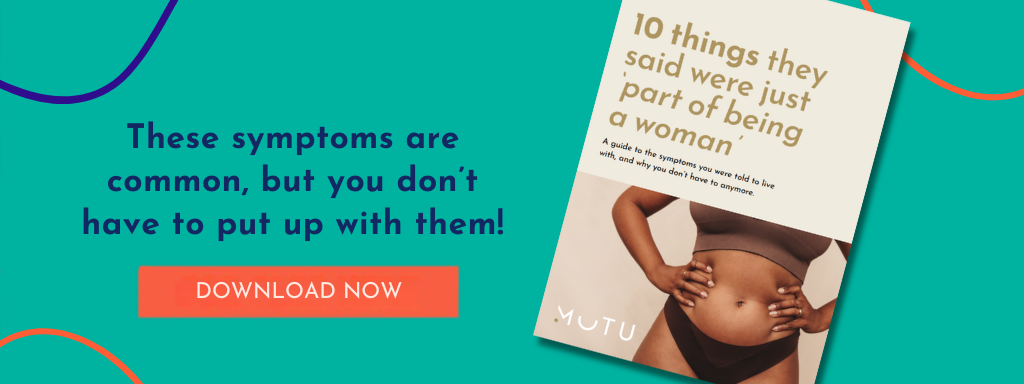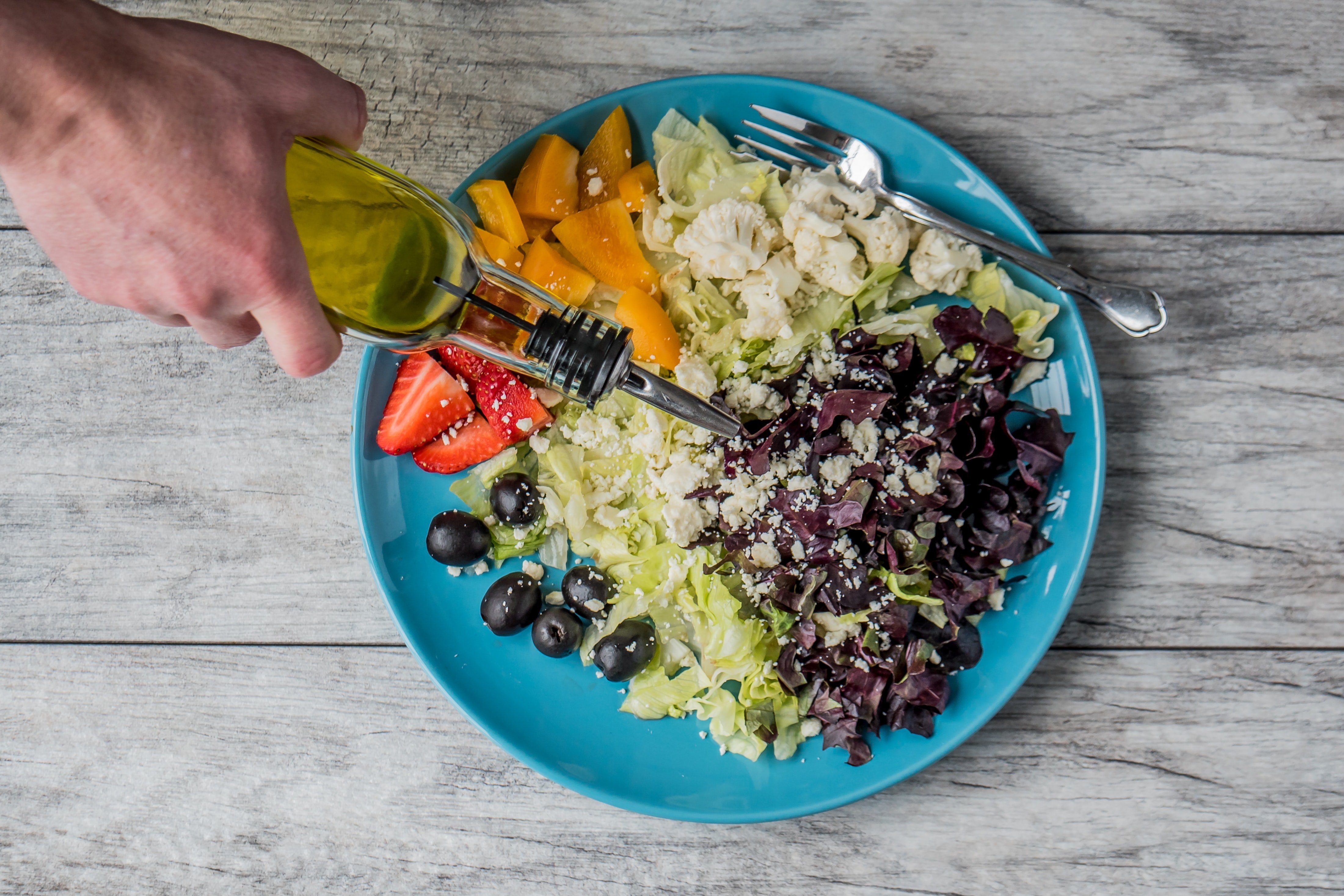This four-part MUTU video series cuts through the bounce-back pressure and food rules to give you what your body truly needs after birth. Real nourishment, real strength, and real recovery on your terms, not the algorithm’s.
What this video is about:
This video shares what real nourishment looks like after birth, without restriction, without rules, and without guilt. Learn how to eat in a way that supports your healing, energy, and sanity, on your terms.
Let’s start with this: you do not need a diet. You do not need a reset, a detox, or a strict food plan. You do not need to “get back” to anything.
You had a baby and your body has done something immense. You are recovering. You might be breastfeeding. You are short on sleep. You are managing hormone shifts, physical changes, and emotional demands that no meal plan can solve. What you need right now is support, not control.
But that is not the message most mothers receive
Instead, you’re shown headlines and Instagram captions promising “bounce-back meals,” “flatten-your-stomach foods,” and “what I eat in a day” videos from people who do not live in your world. It’s not just unrealistic, it’s performative. It’s disconnected from the fatigue, the leaks, the interrupted nights, and the two-minute windows you get to feed yourself.
So let’s talk about what real nourishment looks like after birth.
It starts with enough.
Most new mums are not overeating. They’re often under-eating! Often unintentionally. You’re doing everything on broken sleep, grabbing bites between feeds or while standing at the counter. And then, by late afternoon, you hit a wall.
You feel ravenous, light-headed, or irritable. That’s not a lack of discipline. It’s your body trying to catch up.
You’re doing a full-time repair job. That takes energy, so feed that need.
Start the day with food, even if it’s small. Oats with banana and nut butter. Scrambled eggs on toast. Leftover rice with peas and a boiled egg. A smoothie with whatever is in the freezer. The goal is not perfection. It’s fuel.
Then try to eat every 3–4 hours. Not because you have to, but because it helps. Snacks count. Meals don’t need to be fancy. What matters is consistency.
Add protein, fat, and fibre when you can.
These three together help steady your energy. They make your meals last longer and reduce the crashes that often lead to urgent sugar cravings.
Examples:
- Toast with peanut butter and chia seeds
- Couscous with chickpeas and frozen veg
- Baked potato with beans and cheese
- Pasta with olive oil, tuna, and spinach
- Full-fat yogurt with granola and fruit
Use what you have. Tinned beans are brilliant. Frozen veg is just as nutritious. A fried egg on toast is enough. A bag of salad on the side that needs just a quick wash, olive oil and salt.
Forget “clean eating.” Focus on eating enough.
Cravings are communication
If you’re craving sugar constantly, especially in the afternoon or evening, it usually means something is missing earlier in the day. And it is often food.
Skipping meals. Not eating protein. Living off tea and toast, surviving on half-finished toddler scraps. All of that catches up with you.
Your body is not misbehaving. It’s asking for help.
So before you shame yourself for what you’re eating, ask:
- Did I eat anything substantial before midday?
- Did I include protein or fat?
- Am I tired, anxious, or overstimulated?
If the answer is yes, the craving is trying to protect you. It’s a signal, not a problem.
Eat something nourishing first. Then, if you still want that food, have it. No guilt. No trade-offs. Just food.
Hydration helps, without becoming another thing to get “right.”
Yes, water supports your energy, digestion, and milk supply. But you don’t need to hit a perfect number.
Try this:
- A glass of water when you feed the baby
- A cup of tea with each meal
- Keeping a water bottle near the sofa and bed
Herbal tea, diluted juice, broth, milk, it all counts. What matters is feeling supported, not overwhelmed.
Supplements are tools, not a reflection of failure
Many women are depleted after birth, even when they’re eating well. If you’re feeling especially tired, anxious, or low in mood, supplements can help.
MUTU Medical Ambassador Dr Katy Chisenga advises:
We check for iron, vitamin D and B12 in blood tests, especially when someone is tired. Magnesium isn’t often checked. We recommend a vitamin D supplement in all breastfeeding women. I don’t think we recommend omega-3 in vitamin form, we advise one portion of oily fish a week The ones often recommended postpartum are:
- Iron (especially after blood loss)
- Vitamin D
- B12
- Magnesium (helpful for sleep and mood)
- Omega-3 (supports hormone regulation and mental health)
A good multivitamin can help cover gaps when food is irregular. That’s not cheating. That’s responsible support.
Always consult your GP or midwife before starting something new, especially if breastfeeding.
There is no single right way to eat after birth
You’re feeding a body that is healing and a nervous system that is stretched. Some days you’ll prepare meals. Some days you’ll eat toast with one hand while bouncing a baby with the other.
You are still worthy of nourishment.
MUTU doesn’t hand you a set of food rules. We help you rebuild trust. We guide you in reconnecting to hunger and satiety. We give you tools, not tests, to support your body.
We understand the barriers:
- Time
- Energy
- Budget
- Cultural food preferences
- Mental load
- The pressure to perform “wellness”
We teach:
How to plan simple meals that satisfy. How to eat regularly in a way that’s doable. How to drop the guilt around what, when, and how you eat. And how to let food be part of your healing, not a place of stress
You don’t need discipline. You need support. You are already doing enough, carrying enough. You do not need to add food guilt to your list.
Start by protecting your headspace. Mute the influencers who tell you how to “eat clean.” Unfollow the ones who weigh their almonds. Follow people who talk about food with joy, honesty, and respect for the season you’re in.
Write down how you want to feel:
- Energised
- Steady
- Satisfied
- Less frantic at 4pm
Let that guide your food choices. Not calories. Not carbs. Not a “what I eat in a day” template from someone who doesn’t know your life.
You are allowed to eat to feel better.
You are allowed to eat enough.
You are allowed to enjoy your food.
MUTU Food is here to support your real body, your real needs, and your real life. No tracking. No rules. No pressure to be perfect. Just nourishment that helps you recover, feel steady, and reconnect with yourself. When you’re ready, we’re here.
Other Videos in the “Postpartum Weight Support: What Really Matters” series:
Why Postpartum Weight Loss Advice Misses the Point
Cravings, Comfort Food, and Control – What’s Really Going On?
What If You Never ‘Bounce Back’? Here’s What to Focus on Instead











